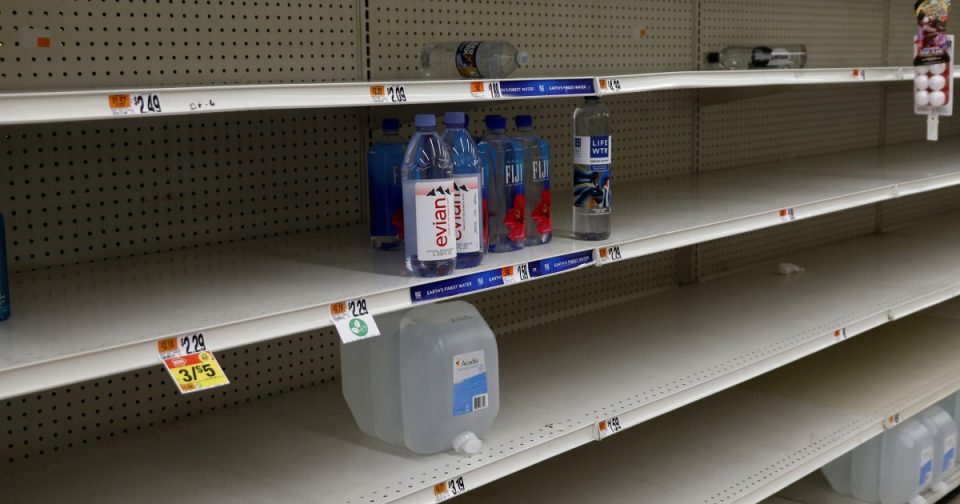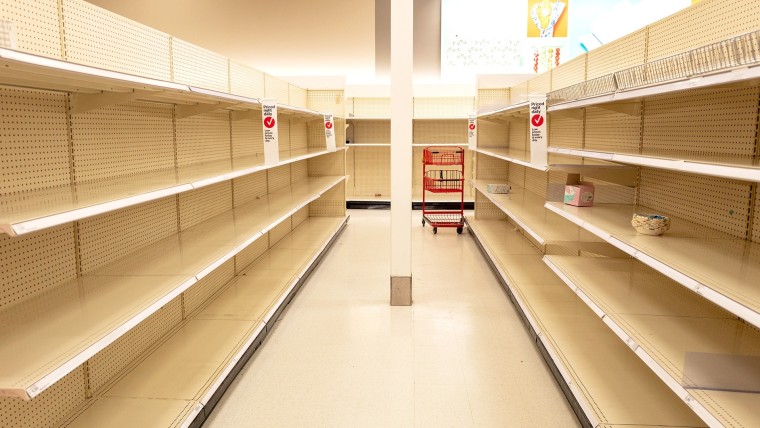You see, I’ve been on the other side, too. In March of 2020 I was working as a cashier in a high-end grocery store in Denver, Colorado. Once COVID-19 arrived in our state, every business was shuttered except for ours and a few other industries that were deemed “essential.” My job went from simple to complicated overnight. People used the word “hero” more liberally than I felt comfortable with. I was transformed from cashier to therapist almost immediately and the shelves turned bare as the plexiglass dividers went up. Any charm in working with the public was muted by the masks we began to wear. Stress, anxiety, uncertainty and isolation were the prevailing tenets of our lives.
As the weeks and months ground on, I noticed that the condition of the shelves wasn’t improving. Neither were our lives. The emergency never went away; it just seeped into the foundation and became normalized. Customers weren’t as outwardly hostile towards each other but still the masked elephant always remained in the room.
I had 10 years working in supply chain before starting in the grocery store, so I could see what was happening: The world had stopped and now it needed to catch up. This is a process and it takes time — a really long time. In this hyper-connected, globally integrated world that we live in, the disruption that a pandemic causes — from rolling lockdowns to inflation — is immediate and long lasting. I saw it all from the ground floor and still deal with the implications two years later. We all do.
I wonder now what we can do to make life more bearable in a world filled with modern frustrations like long lines for COVID tests and prices on everyday goods on the rise. Maybe it’s a good time to learn to meditate or start a new hobby. The world needs more crocheted sweaters, no? But will you be able to get the yarn you need to make said sweater? It’s hard to say. And I don’t have any good answers. But, perhaps, now is the time to embrace those uncertainties and discomforts and look around you at the good things in your life.
I know preaching patience at the gas pump and in the stores won’t feed our families, but the reality is that the headaches aren’t going anywhere for a while. The world’s supply chain needs to have the wheels fixed, engine tuned and transmission repaired by people smarter than me. So, let’s lean into empathy and avoid cruelty in our everyday lives, because we are human and we all have our own burden to bear.
If we can do our best to have rose-colored glasses when we interact with each other in public spaces and private conversations, I think we can learn from this whole debacle and be better off for it.
Adam Kaat is the author of “Life on the Grocery Line: A Frontline Experience in a Global Pandemic,” a book he wrote about working as a grocery store cashier when the COVID-19 pandemic began. He lives in Colorado.



